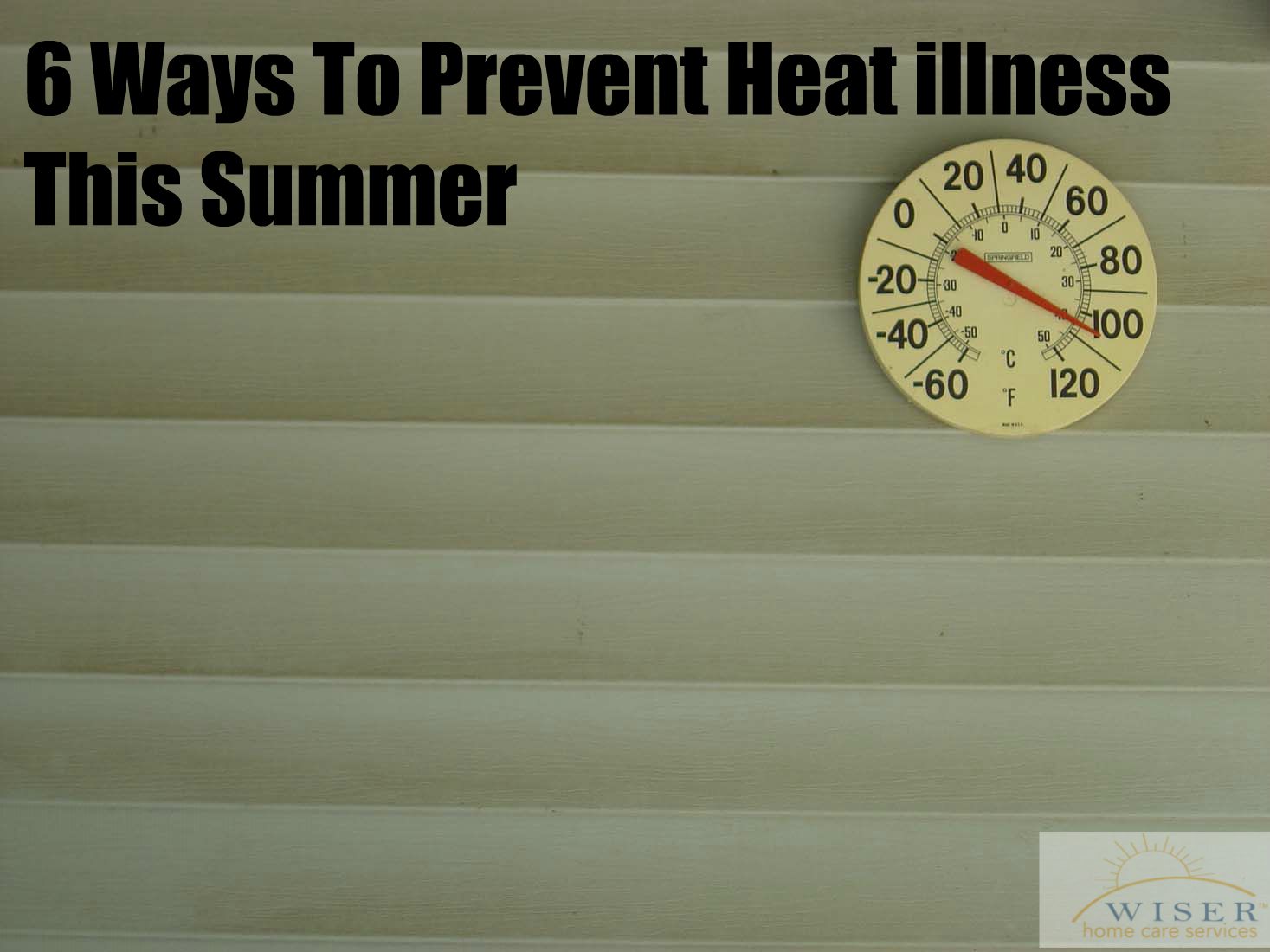A combination of long stretches of hot weather and a lack of precipitation has made this summer one for the record books here in the Pacific Northwest. In fact, with only .23 inches of precipitation in Seattle during June, it was the fourth driest June on record.
The warm weather is a nice change compared to the normal rain here in the Pacific NorthWET. However, the heat poses several dangers including an increased risk of wildfire. Perhaps even more dangerous is the increased risk of heat illness for our elderly loved ones.
Who is at risk of heat illness?
According to the Center for Disease Control anyone could be at risk of heat illness but older adults are particularly vulnerable because they do not adjust well to sudden changes in temperature, may have an already existing condition, or may take a prescription medicine that affects how the body adjust to temperature.
Having a good knowledge of the warning signs and ways to prevent heat illness could save a life.
Heat illness comes in two forms, heat exhaustion and heat stroke, with heat stroke being the most dangerous. The first form, Heat Stroke, is characterized by a body temperature above 103 degrees F, red, hot and dry skin with no sweat, and a rapid pulse. Heat exhaustion, the milder form of heat illness, has some of the following symptoms: heavy sweating, paleness, muscle cramps, tiredness and cool, moist skin.
Heat Illness Warning Signs
Now that you know the warning signs, we have compiled a list of tips to help prevent heat illness.
- Drink cool beverages such as water and gatorade that replenish, hydrate and restore electrolytes
- Avoid alcoholic beverages because they actually increase the risk of dehydration
- Rest and if possible stay in a place with air conditioning and stay indoors
- Wear lightweight clothing
- Avoid strenuous activity
- If you can’t spend all day with your elderly loved one, try to visit them twice daily
Finally, if you care for an elderly loved one and would like help developing a care plan of any kind please feel free to contact us. Wiser Home Care Services can help your family establish a care plan to personally accommodate your loved one’s needs.

